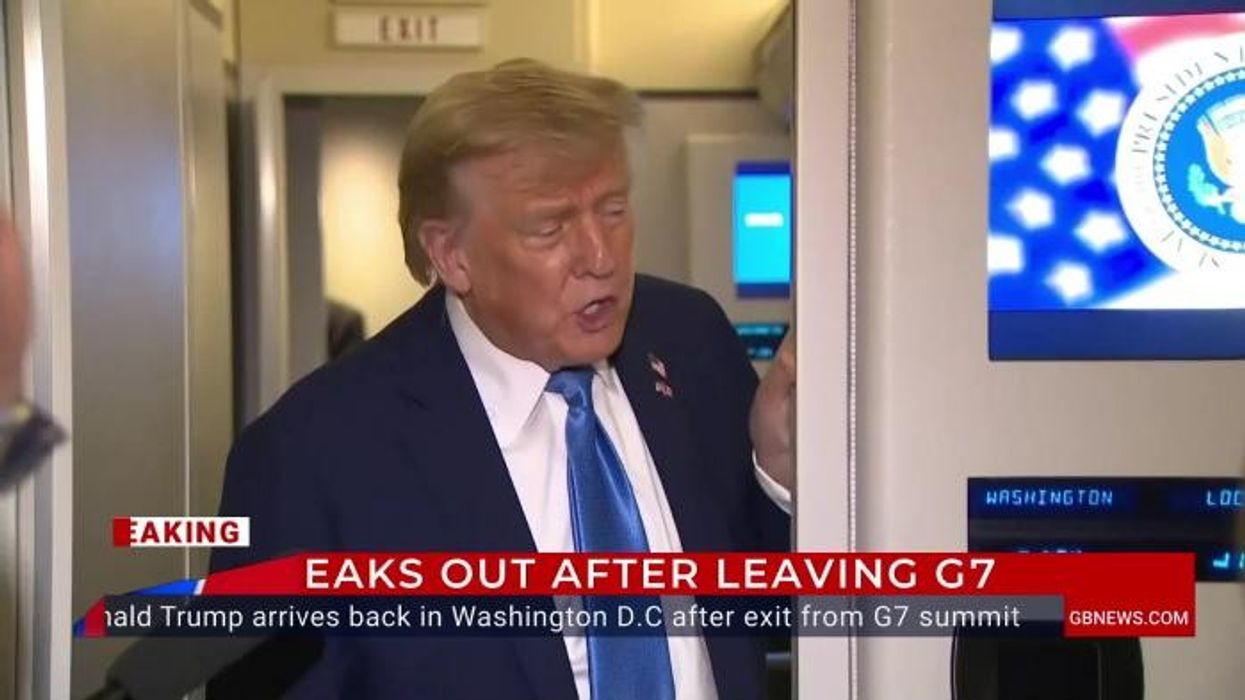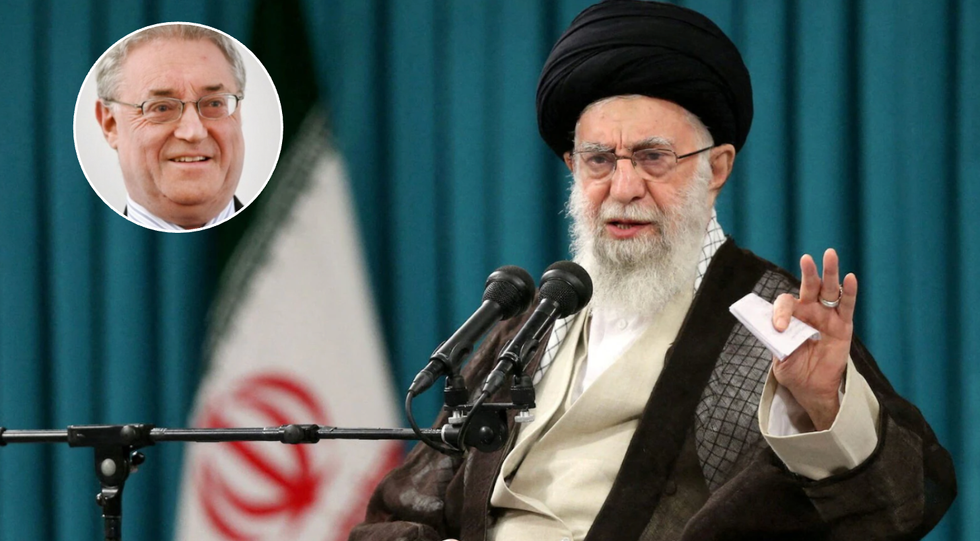Only toppling Iran’s Mullahs can save Israel — and the world. Now is the best opportunity - Gary Mond

Trump says the 'gloves are off' when it comes to Iran |
GB
OPINION: Failure to bring about regime change could be devastating for the whole world. It has to be achieved
Don't Miss
Most Read
Trending on GB News
The year is 2040. Iran’s Islamic theocratic regime, having come close to being overthrown in 2025, has survived and stabilised, and has over the past 15 years totally rebuilt its nuclear infrastructure that was largely destroyed in 2025.
In the White House, there is a Democrat who, along with almost all of his party, has a visceral dislike, even hatred, of Israel. In Israel, Netanyahu has long since gone, and the country is led by a left-wing party whose leader is known to be a pacifist. That year, Iran performed nuclear tests and announced its nuclear weapon status. Nobody, not even Israel, reacts.
Ayatollah Khamenei’s prediction that Israel will cease to exist in September 2040 then comes to pass. And all because the world, including Israel, did not have the guts to finish its work in 2025 and bring about regime change in Iran.
Of course, the above scenario might, thankfully, be unrealistic but something similar leading to Iran gaining a nuclear weapon and using it is not impossible.
The Iranian regime have been working towards this ever since it came to power in 1979. The destruction of Israel by whatever means is its first priority and will continue to be so for as long as it is in power. Other countries around the world may not like Israel and might even wish to see it destroyed, but only Iran prioritises this objective above absolutely everything else – especially the welfare of its own people.
 Only toppling Iran’s Mullahs can save Israel — and the world. Now is the best opportunity - Gary Mond |
Only toppling Iran’s Mullahs can save Israel — and the world. Now is the best opportunity - Gary Mond | WANA NEWS AGENCY/REUTERS
It is hence essential that regime change is achieved. Now, with the Islamic regime at its weakest, is the best opportunity. If the Iranian people, who are almost entirely opposed to their own government, can lead it, that is best, but they may need some support from external parties and that support, whatever it is, should be given.
What will the consequences of regime change in Iran actually be? First, this will constitute a huge step towards Middle East peace. An Iran with a new leadership will, of course, make peace with Israel, and Syria and Lebanon will follow, if not go first.
The clamour for a Palestinian state will diminish, as the mask will slip and it will be regarded as just another mechanism for seeking the destruction of Israel, which neighbouring countries will neither want nor need.
Second, there will be a reduction in worldwide antisemitism. There are two reasons for this, one obvious and the other much more subtle. The obvious reason is that the current Iranian regime will not be there to help finance antisemitic activity all over the world. Iran is, along with Qatar, the leading promoter of Jew-hatred everywhere.
The much more subtle reason relates to the success and failures of major campaigns (be they domestic or international).
Historical examples of successful campaigns related to the Vietnam War (late 1960s, early 1970s) and the riots against the poll tax in the UK (1989-90). A major failure was the anti-nuclear demonstrations, especially in the UK, where they were led by the Campaign for Nuclear Disarmament, in 1983-4.
The latter failed, and the marches and demonstrations, often comprising almost one and a half million people, stopped because those behind them realised that the chances of success had fallen to zero, following Margaret Thatcher’s landslide re-election and polls showing that almost 90 per cent of UK voters supported us retaining nuclear weapons.
The prime objective of today’s anti-Israel worldwide demonstrations is to bring about the end of the state of Israel. The collapse of the Iranian regime will have made that much less likely and probably impossible.
The marches will weaken and largely disappear if the Iranian regime falls. The full ramifications of a change in the Iranian government and its geopolitical consequences are harder to predict, but failure to bring about regime change could be devastating for the whole world. It has to be achieved.
More From GB News










